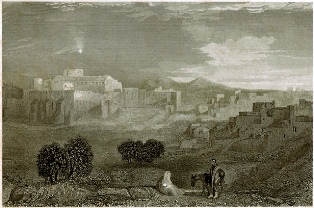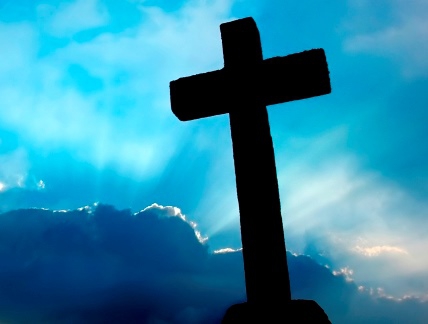The views expressed in our content reflect individual perspectives and do not represent the authoritative views of the Baha'i Faith.
Are Baha’is Christians? Yes – Baha’is love and revere Christ and His teachings. The Baha’i Writings testify that “To be a Christian is to embody every excellence there is.” Love, compassion, honesty, truthfulness, kindness, patience, integrity, and humility – those qualities make up just a few of these many excellences. The Baha’i teachings also proclaim the reverence with which Baha’is view our Lord Jesus Christ:
Know thou that when the Son of Man yielded up His breath to God, the whole creation wept with a great weeping. By sacrificing Himself, however, a fresh capacity was infused into all created things. . . . the unchaste and wayward were healed. . . . the eyes of the blind were opened, and the soul of the sinner sanctified. . . . He it is Who purified the world. Blessed is the man who, with a face beaming with light, hath turned towards Him. – Baha’u’llah, Gleanings, p. 85.
These beautiful words were revealed by Baha’u’llah, the prophet founder of the Baha’i Faith — but who is Baha’u’llah? My Christian friends have always appreciated my straightforward response to this question, even though it invited them to investigate something seemingly unimaginable.
Baha’is believe Baha’u’llah is the Return of Christ, because He is the Return of the Spirit of Christ. In a moment I will offer Biblical support for this, but first, I want to share the insight I gained as a Jewish teenager investigating and embracing Christ’s claim to be the Messiah. I believe this insight will prove helpful to Christians who want to examine Baha’u’llah’s claim.
 At sixteen I read the Gospel for the first time, and my heart was moved by Christ’s life, Word, and sacrificial atonement. My mind, however, craved explanations of how Christ fulfilled certain Hebrew prophecies when it appeared He had not. For example, the Messiah was supposed to be the ruler in Israel:
At sixteen I read the Gospel for the first time, and my heart was moved by Christ’s life, Word, and sacrificial atonement. My mind, however, craved explanations of how Christ fulfilled certain Hebrew prophecies when it appeared He had not. For example, the Messiah was supposed to be the ruler in Israel:
. . . Bethlehem . . . out of thee shall he come forth unto me that is to be ruler in Israel . . . Micah 5:2.
Clearly, Christ was born in Bethlehem, but He was never the ruler in Israel. I asked myself, “How could this prophecy have been fulfilled?” Fortunately, Scripture provided an explanation. When Pontius Pilate asked Christ if He were this ruler, Christ replied:
Thou sayest that I am a king. To this end was I born, and for this cause came I into the world, that I should bear witness unto the truth. – John 18:37
In other words, Christ affirmed that He was this king, but it wasn’t until I reflected on His response that I perceived how He actually fulfilled the prophecy. As the King of Truth, Christ was not just a temporal king ruling land, but a spiritual king ruling the hearts of believers. Clearly, Christ fulfilled this prophecy in a more glorious manner than if He had fulfilled it literally.
This was not the only prophecy fulfilled in a non-literal way. The prophecy foretelling the return of Elijah also fulfilled itself symbolically:
Behold, I will send you Elijah the prophet before the coming of the great and dreadful day of the LORD. – Malachi 4:5
Since Elijah departed to heaven on a chariot of fire (2 Kings 2:11), the Jewish people expected him to return the same way.
The disciples were certainly confused then when Christ declared that John the Baptist was Elijah, for John did not come from heaven but appeared first as a baby in the womb of his mother. What complicated the matter was that when John, himself, was asked if he were Elijah, he responded,
I am not . . . – John 1:21
Once again, Scripture provided a non-literal explanation for how John could be Elijah when it said that John came:
. . . in the spirit and power of Elias, . . . – Luke 1:17
After further reflection, I recognized that Christ must have equated John with Elijah because Christ knew that both men had the same essential characteristics – that they indeed shared the same spirit or steadfastness of faith. John, however, not having Christ’s omniscient perception, would not have regarded himself as Elijah — he saw himself literally as a different person than Elijah. In brief, John represented the return of Elijah because he exhibited the return of the spirit and qualities of Elijah.
After further study, I began to understand that when Christ admonishd us to have “eyes to see and ears to hear”, He was asking us to see the deeper, more symbolic meaning of Scripture, and I began to wonder if His return would be fulfilled in a similar fashion.
Read the next article in the series: The Nature of Christ’s Return

















Comments
Sign in or create an account
Continue with Googleor